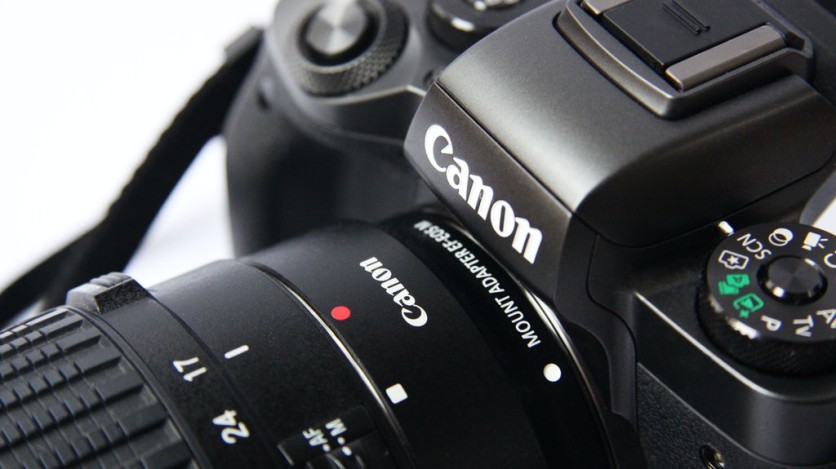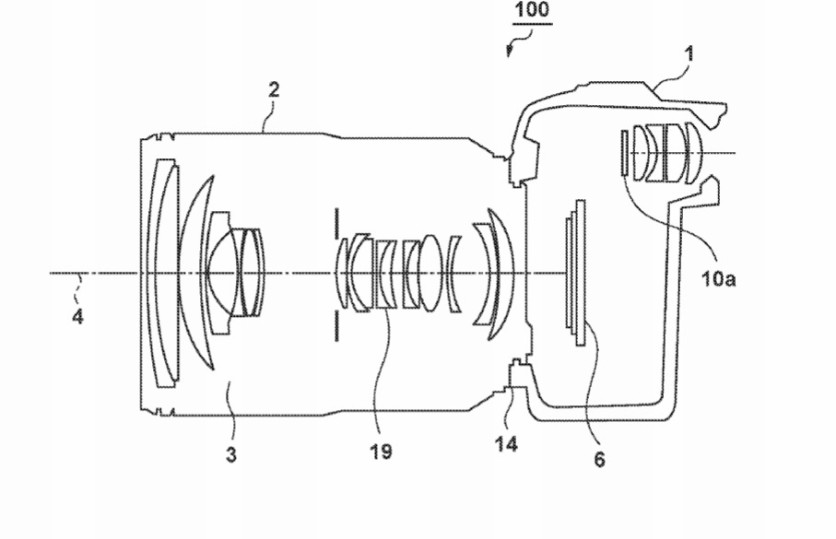A new Canon patent has emerged, and it involves a feature similar to Pentax. The concept behind said patent will function as the opposite of the sensor-shift multi-shot work--and the camera will make use of the IBIS (in-body-image stabilization) to accentuate the underlying effects of the anti-aliasing filter.
Canon Files Patent Focused on IBIS System

According to Canon Rumors which first spotted the report, the Tokyo-based camera manufacturer seems to be headed in creating a shifting sensor essential during the image capture which will approximate the capabilities of an anti-aliasing filter.
"The idea uses fine movement of the sensor stabilization system to perform one of the jobs of the anti-alias filter for the AF system and address problems of sampling and spatial aliasing. A version for DPAF and contrast AF is discussed... The fine control of sensor positioning is also part of a multishot super-resolution solution, where a traditional AA filter might also get in the way," Northlight Images wrote.
For those camera enthusiasts who have created bonds with Pentax technology, the resemblance is striking, especially for the newly-presented K-3 Mark III that uses the same process.
However, instead of using the image stabilizer for the data capture and high-resolution image compilation, the patented feature will do it in reverse. This will mean moving the sensor for the image blur so that it would create a desired look of anti-aliasing filter.
Pentax is the pioneer for the very first AA filter simulator that houses the optical AA filter responsible for its effect reproduction. Moreover, the K-3 makes it possible for the false color to be minimized through the application of the microscopic vibrations to the CMOS sensor.
The Limitations of the IBIS, Anti-Aliasing Filter

What Canon did is to catch up on Pentax's technology. In this patent, photography-savvy individuals will have an easy way to open and close the anti-aliasing filter. Sony is close to the two, but it chose to utilize the RX1R Mark II camera's low-pass filter scheme.
According to PetaPixel, the feature will be breath-taking for those who understand what it can do. However, its greatness is not perfected overnight since it has many limitations.
One of the disadvantages of relying on the image stabilizer during shooting is the reduction of its usability. If a photographer uses a 1/1000 second shutter speed or even slower, the evident trade-off can be noticed.
To clearly understand the anti-aliasing filters, they could also be called optical low-pass filters. For photo enthusiasts, this feature is normally applied when capturing videos and images on fabrics or in buildings through wide-angle shots specifically when windows are shut down.
The watered textile which is known as "moire" will be the result of the process. The wavy water will be the perfect description for this visual effect. There is also a noticeable decrease in perceived sharpness, and that is a side-effect of this feature.
As Canon wrote about the IBIS patent, you can activate, deactivate and change the low-pass filter effect by cutting the incident light flux. In connection to this, the LPF effects are far more complicated than the LPF bracketing.
To know more about this patent, click here.
Related Article: Canon EOS R3 Mirrorless Now Back with Eye Control AF Plus New Macro Lens: Features and Expected Release Date
This article is owned by Tech Times
Written by Joseph Henry
ⓒ 2025 TECHTIMES.com All rights reserved. Do not reproduce without permission.




